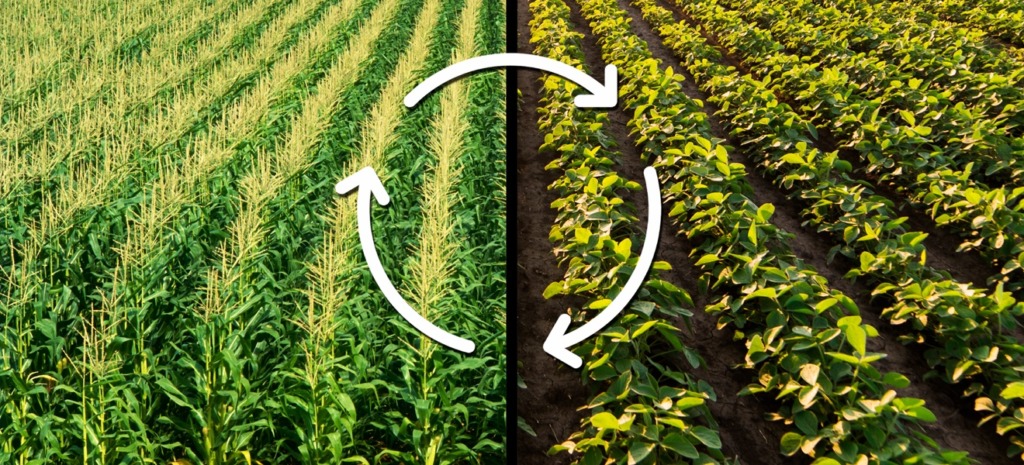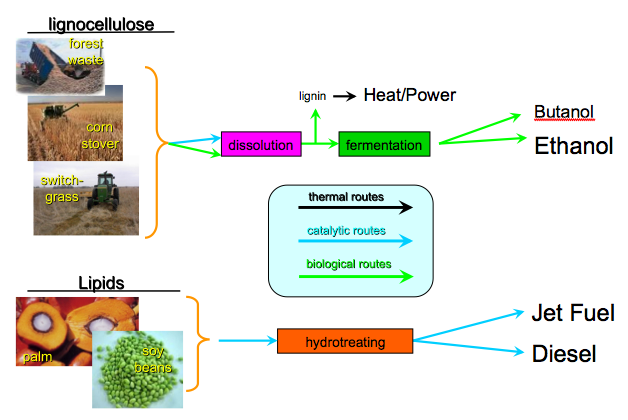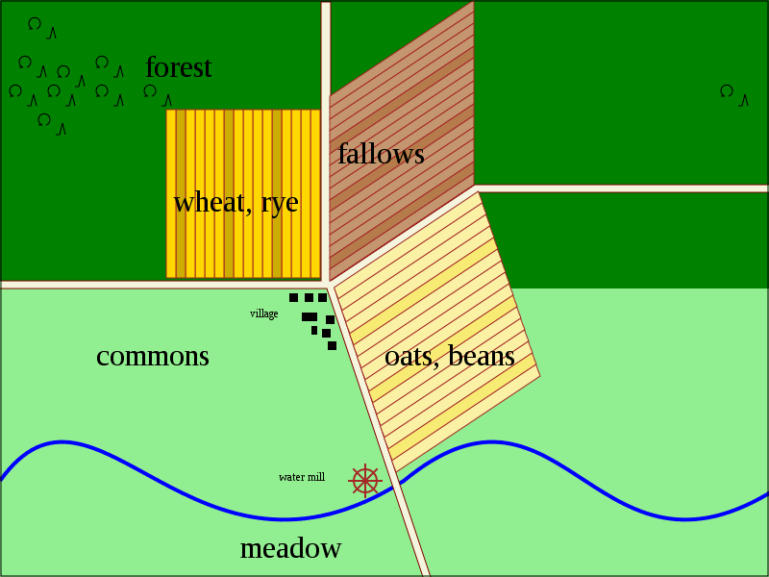
Crop Rotation and Biofuel Production: The Intersection of Sustainable Agriculture and Renewable Energy
Introduction
Crop rotation and biofuel production are two concepts that play a crucial role in promoting sustainable agriculture and renewable energy. In this article, we will explore the historical background, key concepts, main discussion points, case studies, current trends or developments, challenges or controversies, future outlook, and the significance of crop rotation and biofuel production. By the end of this article, readers will have a comprehensive understanding of these topics and their importance in shaping the future of agriculture and energy production.
Historical Background
Crop rotation has been practiced for centuries, with origins dating back to ancient civilizations. These early agricultural societies recognized the benefits of rotating crops to improve soil fertility and prevent nutrient depletion. Over time, crop rotation techniques evolved, and farmers began experimenting with different combinations and rotations to maximize productivity.
Biofuel production, on the other hand, is a relatively modern concept that has gained prominence in recent decades. It emerged as a response to concerns over fossil fuel depletion and environmental degradation. The development of biofuel production technologies has been influenced by advancements in agricultural practices, particularly in crop rotation and the cultivation of energy crops.
Key Concepts and Definitions
Crop rotation refers to the systematic practice of growing different crops in a specific sequence on the same piece of land over a defined period. It aims to improve soil health, manage pests and diseases, control weeds, and enhance overall agricultural sustainability. By rotating crops, farmers can break pest and disease cycles, reduce soil erosion, and optimize nutrient cycling.
Biofuel production involves the conversion of biomass, derived from organic materials such as crops or agricultural residues, into usable fuels. Biofuels serve as an alternative to fossil fuels, offering a more sustainable and environmentally friendly source of energy. Different types of biofuels, such as ethanol and biodiesel, are produced through various processes like fermentation and transesterification. The choice of feedstock, such as corn, sugarcane, or algae, also plays a significant role in biofuel production.

Main Discussion Points
Benefits of Crop Rotation in Biofuel Production
Crop rotation offers several benefits in the context of biofuel production. Firstly, it enhances soil fertility and nutrient cycling by providing a diverse range of crops with varying nutrient requirements. This reduces the need for synthetic fertilizers and promotes sustainable agricultural practices.
Secondly, crop rotation helps manage pests and diseases effectively. By interrupting the life cycles of pests and diseases, farmers can minimize the use of chemical pesticides, leading to a safer and more environmentally friendly production process.
Thirdly, crop rotation aids in weed control and reduces the reliance on herbicides. Different crops require different weed management techniques, including mechanical and biological methods, thereby decreasing the overall use of herbicides.
Lastly, crop rotation diversifies income for farmers. By including biofuel crops in their rotations, farmers can tap into the growing demand for renewable energy sources and potentially increase profitability.
Biofuel Production Methods and Technologies
Biofuel production encompasses various methods and technologies that contribute to the overall efficiency and sustainability of the process. Different types of biofuels, such as ethanol and biodiesel, are produced through specific production processes like fermentation and transesterification.
To ensure a sustainable supply of feedstock, biofuel production considers various options such as corn, sugarcane, and algae. Each feedstock has its advantages and challenges, and ongoing research strives to optimize their productivity and environmental impact.
Advancements in biofuel production, particularly in second-generation biofuels, have expanded the possibilities of utilizing non-food crops and agricultural residues for fuel production. This reduces the competition between food and fuel crops and presents a more sustainable pathway for biofuel production.

Case Studies or Examples
Successful implementation of Crop Rotation for Biofuel Production
A notable case study showcasing the successful implementation of crop rotation in biofuel production is the use of cover crops in corn production. By planting cover crops, such as legumes or grasses, during fallow periods, farmers can improve soil health and reduce nitrogen leaching. This practice enhances the productivity of subsequent corn crops, leading to higher yields and overall profitability.
Challenges faced by farmers in adopting Crop Rotation practices
Despite the numerous benefits of crop rotation, farmers face challenges in adopting these practices. One significant challenge is the need for additional knowledge and skills in implementing crop rotation effectively. Farmers must understand the specific requirements of each crop and manage the timing and logistics of rotation.
Furthermore, transitioning from monoculture systems to crop rotations often requires changes in farm infrastructure and equipment. This can be financially burdensome, particularly for small-scale farmers who may struggle to invest in the necessary resources.
Example of a biofuel production facility and its impact on the local community
One example of a biofuel production facility is an ethanol plant located in a rural community. This facility utilizes corn as a feedstock and employs a high-tech fermentation process to produce ethanol. The plant provides employment opportunities for local residents and stimulates economic growth in the surrounding area. Additionally, the plant promotes sustainable farming practices by encouraging farmers to diversify their crops and participate in the biofuel supply chain.
Current Trends or Developments
Recent research findings have highlighted the effectiveness of crop rotation in biofuel crops, particularly in improving soil health and reducing the environmental impacts of intensive agriculture. Studies have shown that crop rotation contributes to higher yields, increased carbon sequestration, and enhanced biodiversity.
Advancements in biofuel production technologies are continuously being made to improve efficiency and reduce carbon emissions. Research focuses on developing more efficient conversion processes, exploring alternative feedstocks, and optimizing the use of agricultural residues and waste materials.

Government policies and incentives play a crucial role in promoting biofuel production and crop diversification. Many countries have implemented policies that encourage the use of biofuels, such as mandated blending ratios or tax incentives for biofuel producers. These measures contribute to the growth of the biofuel industry and facilitate the transition towards renewable energy sources.
Challenges or Controversies
Debate over the use of food crops for biofuel production remains a prominent issue. Critics argue that diverting food crops for fuel production can lead to increased food prices, food insecurity, and land-use conflicts. Balancing the demand for food and fuel crops is a complex challenge that requires careful planning and policy intervention.
Potential environmental impacts of biofuel production also raise concerns. The cultivation of energy crops can result in deforestation, habitat destruction, and increased water usage. Additionally, the use of fertilizers and pesticides in large-scale biofuel production can have negative impacts on water quality and biodiversity.
Economic challenges faced by farmers in transitioning to biofuel crops include the initial investment costs, uncertainty in the biofuel market, and the need for specialized equipment and infrastructure. Financial support and incentives are essential to assist farmers in adopting sustainable agricultural practices and diversifying their income streams.
Future Outlook
The potential for further research and innovation in crop rotation and biofuel production is promising. Ongoing studies seek to optimize crop rotations, improve the resilience of biofuel crops to climate change, and develop new feedstocks that are more sustainable and efficient.
Biofuels are expected to play a crucial role in achieving renewable energy targets and reducing carbon emissions. As the demand for clean energy increases, biofuels will become an integral part of the energy mix, providing a renewable and environmentally friendly alternative to fossil fuels.
The implications of crop rotation and biofuel production extend beyond energy production. These practices have the potential to revolutionize agricultural practices and promote rural development. By diversifying crops and income sources, farmers can build resilient and sustainable agricultural systems that contribute to local economies and communities.
Conclusion
In conclusion, crop rotation and biofuel production are interconnected concepts that hold significant importance in promoting sustainable agriculture and renewable energy. The benefits of crop rotation in biofuel production, advancements in biofuel production technologies, and ongoing research efforts all contribute to the advancement of these fields. However, challenges and controversies surrounding the use of food crops, potential environmental impacts, and economic hurdles must be addressed. By further exploring the potential of crop rotation and biofuel production, we can pave the way for a more sustainable and energy-efficient future.




